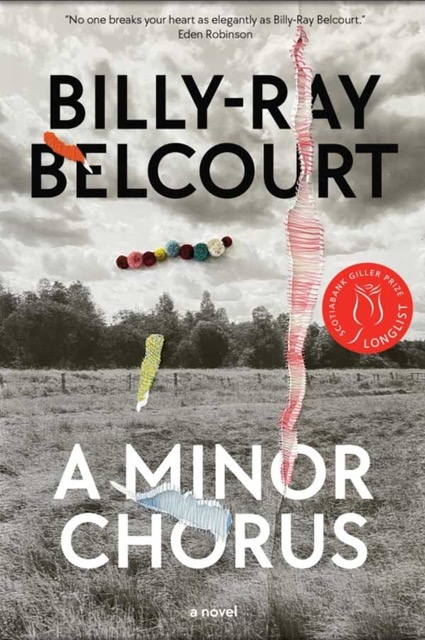Can one write like a community? Where the narrative voice isn’t individual but plural? Is this the first-person plural?” These questions come to the narrator in a burst of inspiration midway through A Minor Chorus, and they represent both the hypothesis and the mission statement of Griffin Poetry Prize-winner Billy-Ray Belcourt’s first novel.
A young Cree man, disenchanted with his life in academia, puts his Ph.D. on hold and journeys back to his hometown in northern Alberta, determined to write a novel. He is full of ideas for what he wants his book to be: “a kind of literary ethnography of sadness and hope, of constraint and possibility”… “a body of water from which I frantically wanted to drink”… “a bomb… in the moral infrastructure of a corrupt nation.”
The narrator argues that academic theory and novelistic prose are not that different, and this belief infuses much of the book with a contemplative, analytical tone. Questions, musings and references to famous theorists sometimes crowd out tangible scenes that show us the narrator interacting with and reacting to his world, and the result is an at-times nebulous narrative that drifts from one thought to another without grounding.
The book digs into rich soil, however, when the narrator foregrounds the stories and voices of people in his community. We meet a beloved auntie who filled the role a mother could not;
a cousin celebrating her daughter’s first jingle dress performance at a pow wow. A hotel room hookup scene is intricately layered with the colliding forces of boredom, melancholy, horniness and history. An interview with a gay local news reporter from an older generation becomes a delicate dance of caginess and confession. A confrontation with a white woman in front of a residential school crackles with sinister energy, at once terribly tense and maddening in its mundaneness.
Humming under all of these testaments is the story that bookends the novel, which opens with his cousin’s direct and imaginative way of speaking—the most sharp and piercing note in the story of the community’s ongoing oppression. “The thesis behind my project was that people turned into musical instruments when encouraged to testify about the conditions of their lives,” says the narrator. “My success hinged on my ability to endure whatever song was sung, so I listened with both eyes, with my hands clasped tightly in front of me.”
It can be difficult to follow this book’s introspective narrator, who seems to get lost in his own thoughts, if not to revel in the deliberate obfuscation of academic language. But as a witness, as a scribe, he faithfully represents the complex harmonies of a dozen lives lived. And that’s where A Minor Chorus truly sings.
Bruce Cinnamon is the author of The Melting Queen.
_______________________________________


